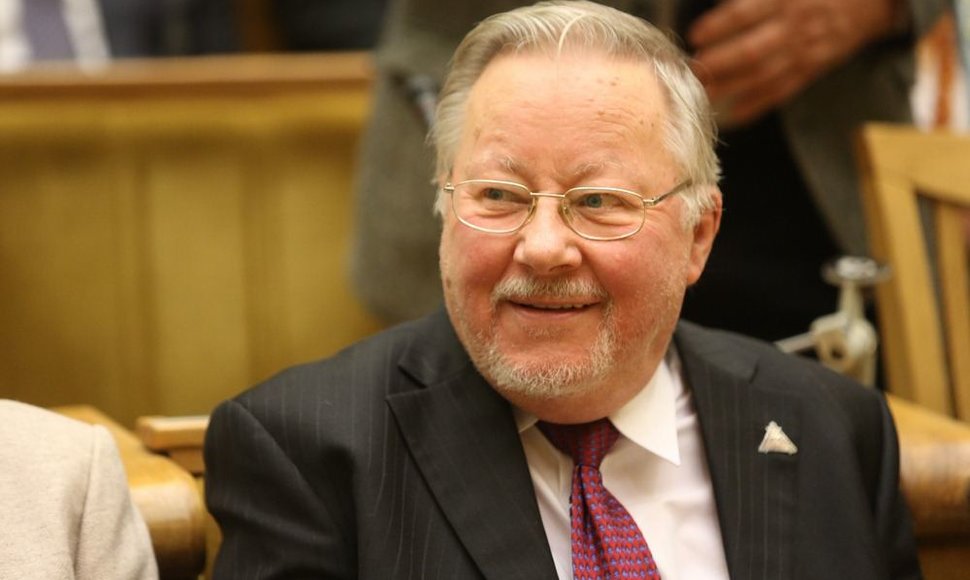In a letter to Parliamentary Speaker Irena Degutienė, Landsbergis said he had learned about the nomination for the prize from the media.
"As Honorable Antanas Terleckas has already been nominated for the prize and I have supported the nomination, there is no way I can compete with the freedom fighter who is of older age, has been persecuted with prisons and living a difficult life," Landsbergis said.
"I am kindly asking to stop considering my candidacy and delete it from any list to keep me from having to reject the prize, in case this decision is made at the Seimas. I am giving my sincere and confident support to Antanas Terleckas for the Freedom Prize of the Republic of Lithuania," the MEP said.
Landsbergis was officially proposed for the prize by Foreign Minister Audronius Ažubalis who said in his letter on Tuesday that Landsbergis and his activities had become an integral symbol of the struggle for free self-determination, independence, and sovereignty of Lithuania and the entire Eastern European region.
Landsbergis, who turned 80 last week, headed Lithuania's Supreme Soviet that adopted the 11 March Act in 1990 thus restoring Lithuania's independence from the Soviet Union after a half-century occupation. During his leadership, Lithuania managed to survive the Soviet economic blockade and win international recognition.
Terleckas, 84, was among the most ardent dissidents during the Soviet rule who established the Lithuanian Freedom League together with his allies in 1978. Due to his activities, Terleckas has been held in camps in Siberia and a prison in Vilnius.
The first Freedom Prize went to Russian dissident and human rights defender Sergey Kovalev this year.
Under the law, the prize is conferred on the Day of Freedom Defenders on 13 January. The winner is decided by parliament by 23 December.












